Make the most of niche markets
Vietnam's main seafood export products, shrimp, pangasius and tuna, all recorded a lack of optimism in the first months of 2023, according to the Vietnam Association of Seafood Exporters and Producers (VASEP).
The decline in major commodities occurred when key markets such as CPTPP, the US, Europe, and China all saw reduced demand. In the first two quarters of 2023, seafood export turnover to these markets decreased quite sharply, from 30-45%, the US market decreased by 51%.
However, Mr. Nguyen Hoai Nam, Deputy Secretary General of VASEP, said that the seafood industry is gradually showing positive signs when the total industry decline is only negative 22% in the first 9 months of 2023 compared to the same period last year, while the total in the first 6-7 months of 2023 is always above negative 30% and near negative 40%.
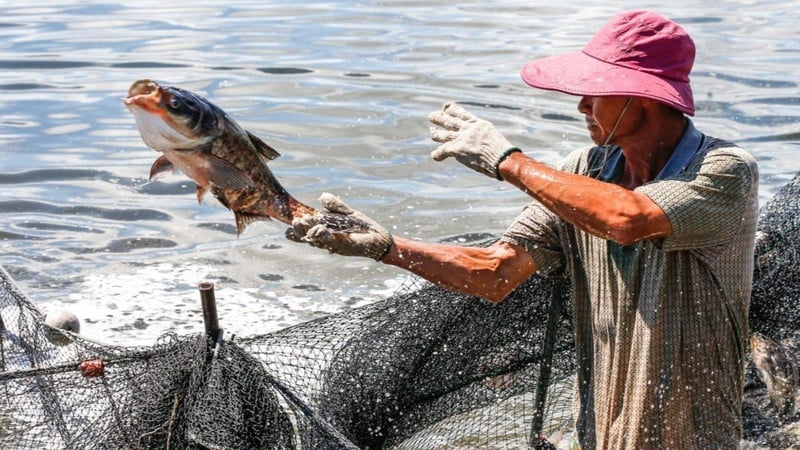 |
| In the first 10 months of 2023, Vietnamese seafood exporting enterprises have been finding ways to enter "niche" markets in Africa and the Middle East when key export markets have seen a decline in turnover. |
According to VASEP, from now until the end of the year, the seafood industry will have to face challenges along with opportunities. In terms of opportunities, in addition to markets showing signs of improvement, the Middle East region has seen negative growth that has decreased significantly and is much smaller than other markets.
For example, the Egyptian market is one of the gateways for Vietnamese seafood products to enter the Arab and North African countries. Mr. Nguyen Duy Hung - Commercial Counselor, Vietnam Trade Office in Egypt said that Egypt currently has a large demand for importing fish from other countries.
Egypt mainly imports frozen pangasius fillets from Vietnam and frozen salmon fillets from Norway. In 2022, Egypt's frozen fish fillet import turnover reached 40 million USD, an increase of 42.5% compared to 2021, of which imports from Vietnam and Norway accounted for 92% and 5.5% of total import turnover, respectively.
Regarding frozen shrimp, Egypt imports frozen shrimp mainly from the UAE (accounting for 90% of total imports in 2022) and Saudi Arabia (6%) while Vietnam is hardly able to export to the market due to its lack of price competitiveness, partly due to high import taxes (up to 20%) and transportation costs.
In particular, in 2022, Vietnam was the second largest supplier of canned tuna to Egypt but only accounted for 7.9% in terms of turnover and far behind the leading country Thailand with a market share of 89.5% in 2022. In addition to tuna, Egypt also imports a number of other processed fish such as sardines, mackerel and anchovies.
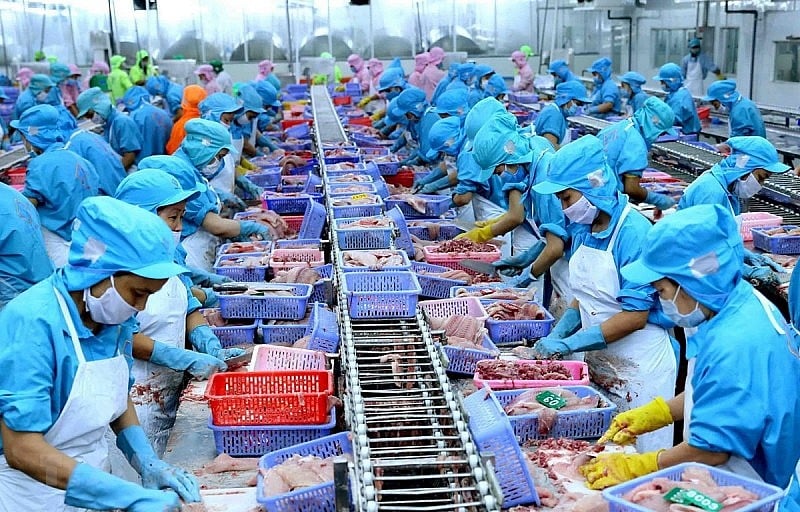 |
| According to VASEP, despite a sharp decrease in export turnover, the UAE is still considered a potential market for Vietnamese seafood products. |
Similarly, for the United Arab Emirates (UAE), Vietnam is in the Top 4 leading seafood suppliers to this market, including: India, Thailand, Norway. India has a dominant market share of 20%-24% with the main product being frozen shrimp, while Vietnam's market share fluctuates from 6%-9% with the main product being frozen pangasius fillets.
According to VASEP, Vietnam exports about 22-24 thousand tons of seafood to the UAE each year, with a value ranging from 50-70 million USD, showing that there is still much room in this potential market. Particularly for frozen fish fillet products coded HS0304, Vietnam ranks first thanks to exported tra fish products, accounting for 40%-50% of the market share in the UAE.
However, in terms of shrimp, Vietnam ranks 5th, competing with India and Ecuador. India accounts for nearly 60%-70% of the market share, Ecuador has only entered the market in recent years with a 15% market share, while Vietnam only accounts for 5%-7%.
The most imported seafood products into the UAE are frozen whiteleg shrimp and black tiger shrimp, processed/preserved tuna, skipjack and Atlantic tuna, fresh/chilled Atlantic salmon and Danube salmon and other frozen fish, including pangasius...
Following the general trend and context of the world market, in the first half of 2023, Vietnam's seafood exports to the UAE decreased by over 50% to more than 17 million USD. Of which, tra fish and black tiger shrimp exports both decreased by over 50%, white-leg shrimp decreased by 73%...
Maintain market share, increase market share of key products
Despite the sharp decline in turnover, the UAE is still considered a potential market for Vietnamese seafood products. VASEP believes that the UAE is a market with a developed economy and high demand for seafood products. This West Asian country is a net importer of seafood and imports up to 90% of its food consumption. It is estimated that the UAE imports about 250,000 tons of seafood each year, worth 750-800 million USD. Nearly 90% of the UAE population are immigrants, so fish and seafood products are an indispensable part of every traditional meal.
In addition, Vietnam is currently actively promoting negotiations for a bilateral Free Trade Agreement (FTA) with the UAE. Therefore, economic experts as well as the export business community expect that this market will be more open to Vietnamese seafood products if the import tax on seafood to the UAE is agreed upon by the two countries at 0%.
However, VASEP also noted that, besides the tariff issue, the biggest difficulty for enterprises exporting to the UAE is the requirements of importers related to Halal certification. Products granted Halal certification are products that do not contain any ingredients prohibited by Islamic law (LHG); the product must not come into contact with any means or equipment made from materials not permitted by LHG, during all stages of production; and during that process, the product must not come into contact with any nutritious food made from materials not accepted by LHG.
Meanwhile, to increase seafood exports to the Egyptian market, Counselor Nguyen Duy Hung said that domestic enterprises need to maintain and increase market share in strong products, and should focus more on frozen processed fish products. On the other hand, enterprises need to learn more about the market. "Egypt is lacking foreign currency, enterprises need to pay attention to the issue of late payment leading to disputes" - Mr. Nguyen Duy Hung advised.
Source link



![[Photo] Prime Minister Pham Minh Chinh chairs the Government's online conference with localities](https://vphoto.vietnam.vn/thumb/1200x675/vietnam/resource/IMAGE/2025/10/5/264793cfb4404c63a701d235ff43e1bd)

![[Photo] Prime Minister Pham Minh Chinh launched a peak emulation campaign to achieve achievements in celebration of the 14th National Party Congress](https://vphoto.vietnam.vn/thumb/1200x675/vietnam/resource/IMAGE/2025/10/5/8869ec5cdbc740f58fbf2ae73f065076)


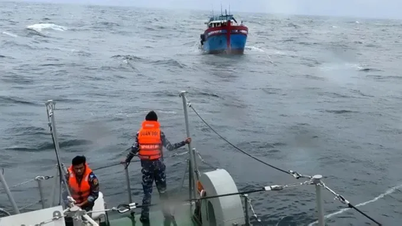

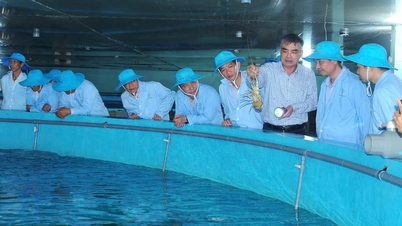






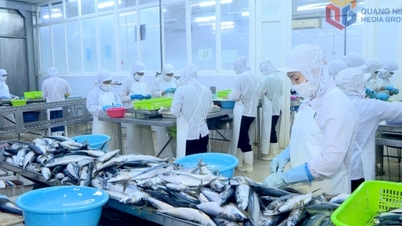













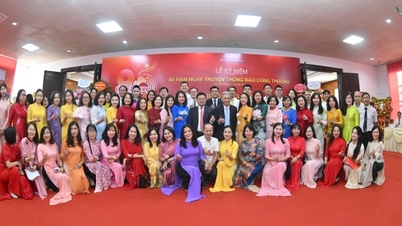






























![[VIDEO] Summary of Petrovietnam's 50th Anniversary Ceremony](https://vphoto.vietnam.vn/thumb/402x226/vietnam/resource/IMAGE/2025/10/4/abe133bdb8114793a16d4fe3e5bd0f12)

![[VIDEO] GENERAL SECRETARY TO LAM AWARDS PETROVIETNAM 8 GOLDEN WORDS: "PIONEER - EXCELLENT - SUSTAINABLE - GLOBAL"](https://vphoto.vietnam.vn/thumb/402x226/vietnam/resource/IMAGE/2025/7/23/c2fdb48863e846cfa9fb8e6ea9cf44e7)




































Comment (0)